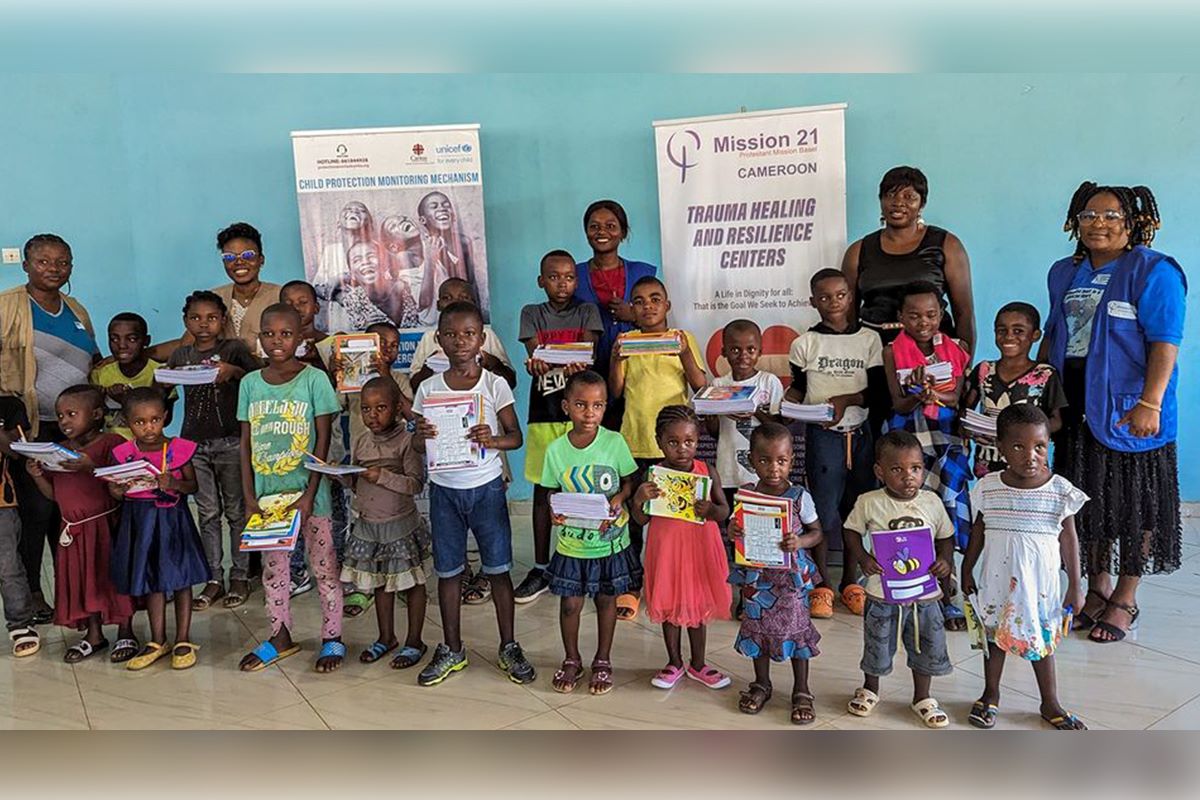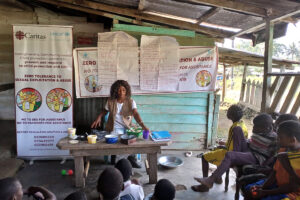Overcoming Educational Barriers for Vulnerable children
-
by
caritaskumba
Families forced to flee violence find themselves displaced in different communities, severing ties to their homes, and means of livelihood and consequently confronted with difficulties in securing consistent educational opportunities for their children. The economic repercussions of such instability often force parents into the unenviable position of deprioritizing educational expenses, creating an impossible barrier that impedes children from accessing critical education during their formative developmental years.
The crisis in the South West Region continue to cast a shadow over the lives of many families, particularly displaced individuals seeking refuge in urban areas. The widespread displacements have collectively dealt a severe blow to the accessibility of education, particularly for the most vulnerable. Yet, in the adversity, Caritas Kumba and community leaders are undertaking concerted efforts to break barriers, striving to create pathways for sustained learning for children facing challenges.
Within the Diocese of Kumba, Caritas Kumba, worked in collaboration with other community stakeholders to unlock the doors to education for vulnerable children. Tansah Beltha, overseeing the back-to-school initiative at Caritas Kumba, articulated the predicament, stating, “We encountered children whose desire for education was palpable, yet they lacked the fundamental essentials required to step into a classroom. The absence of proper supplies and resources renders the path to learning virtually impassable.”
At the beginning of the academic year, Caritas Kumba took affirmative action, providing over 50 displaced and economically vulnerable children with the requisite materials to partake in their educational journey alongside their more financially stable peers. The provision of essential school supplies such as books, pens, pencils, erasers, and bags, was instrumental in placing the tools for learning and accomplishment directly into the hands of these children. The comprehensive coverage of school fees ensured that they were endowed with the financial backing necessary for an uninterrupted education, free from the burden of additional financial hurdles. These provisions not only facilitated physical access to school premises but also instilled the children with the assurance of an equal opportunity to concentrate in the classroom, void of discrimination based on their circumstances beyond the school gate.
Among the recipients of this support was twelve-year-old Rene, whose life took a transformative turn due to the assistance. Forced from his habitual place of residence, Rene’s outlook shifted from one of hopelessness to optimism during a challenging phase of life impaired by the absence of educational access, a prerequisite for social and economic mobility. “When Caritas helped me and informed me that I could now be enrolled in school, I was overjoyed. I can once again learn with my friends and not miss out on schooling,” shared Rene.
While the crisis persists, wreaking havoc, uncertainty, community leaders remain undeterred, employing relentless and innovative strategies to empower children to continue learning. Beltha, speaking at the handing-over ceremony, asserted, “If we aspire to witness the next generation transcend this crisis, children must receive an education that propels them forward.” Mission 21, a collaborator in this endeavor, emphasizing that such opportunities are pivotal for sustainable communities, echoed the sentiments.
As Rene embarks on his return to school, equipped with a new satchel filled not just with books but also with hope, replacing distress and uncertainty, his parents exude a palpable sense of relief and optimism for the future. Caritas and community leaders envision an expansion of these initiatives, unlocking educational doors for vulnerable children, ensuring that youth can acquire the knowledge and skills necessary for personal achievement and community reconstruction. Despite formidable barriers and challenges on the horizon, Beltha emphasized, “We will persist in unlocking these doors for children who deserve not just to survive but to thrive.
“This alleviates a substantial burden for me, all I ever wanted was an opportunity for my children to attend school.” – Parent of Beneficiary


